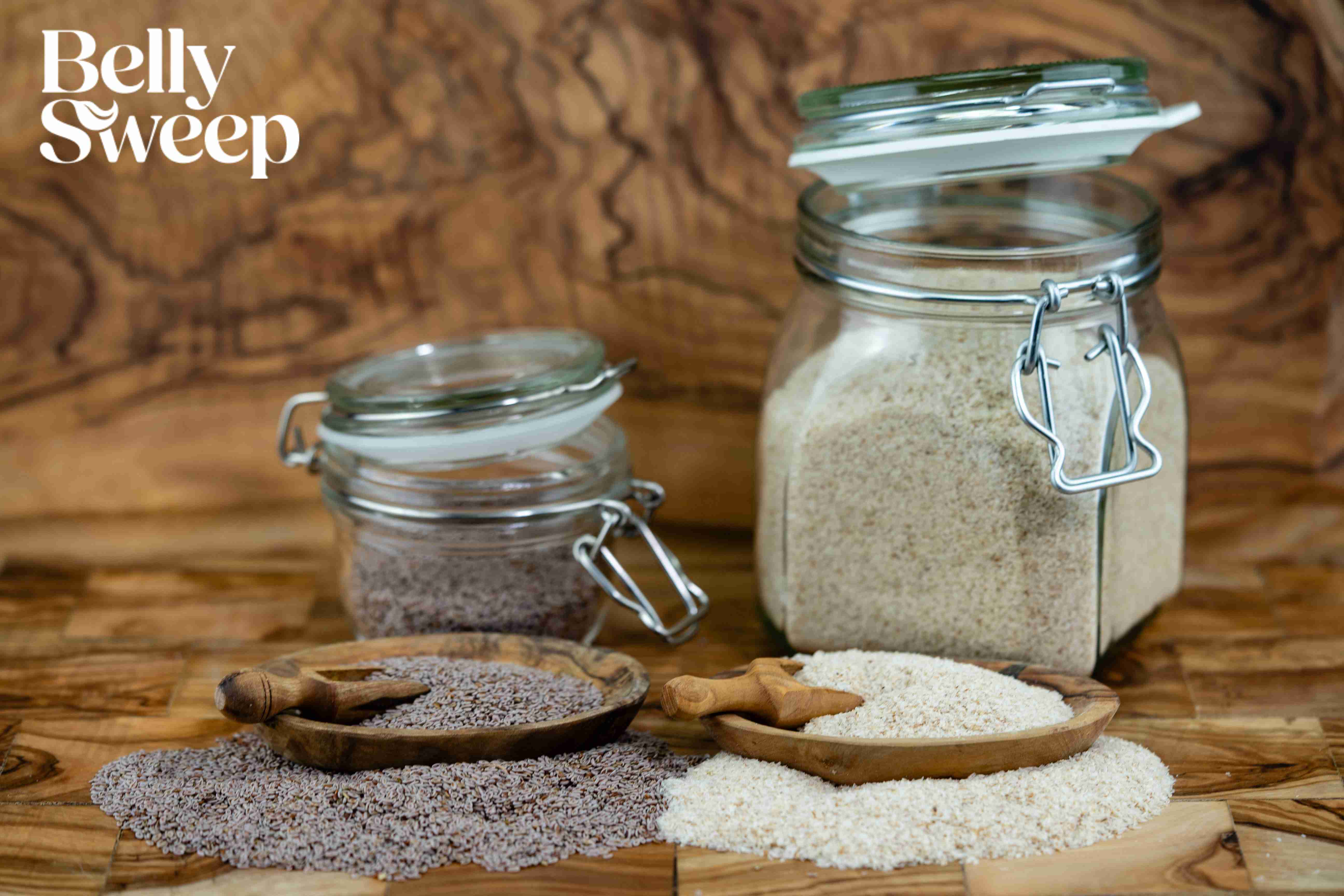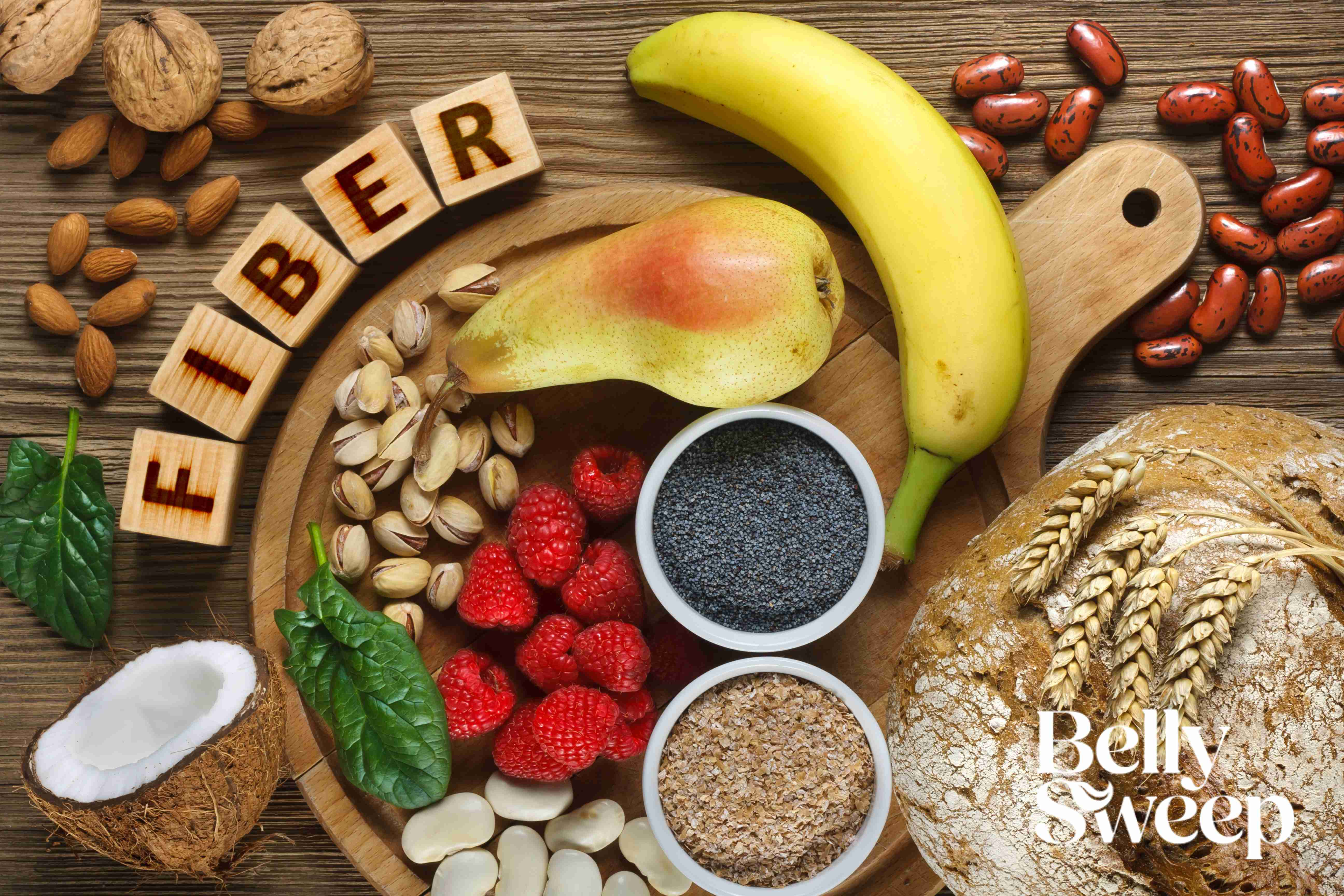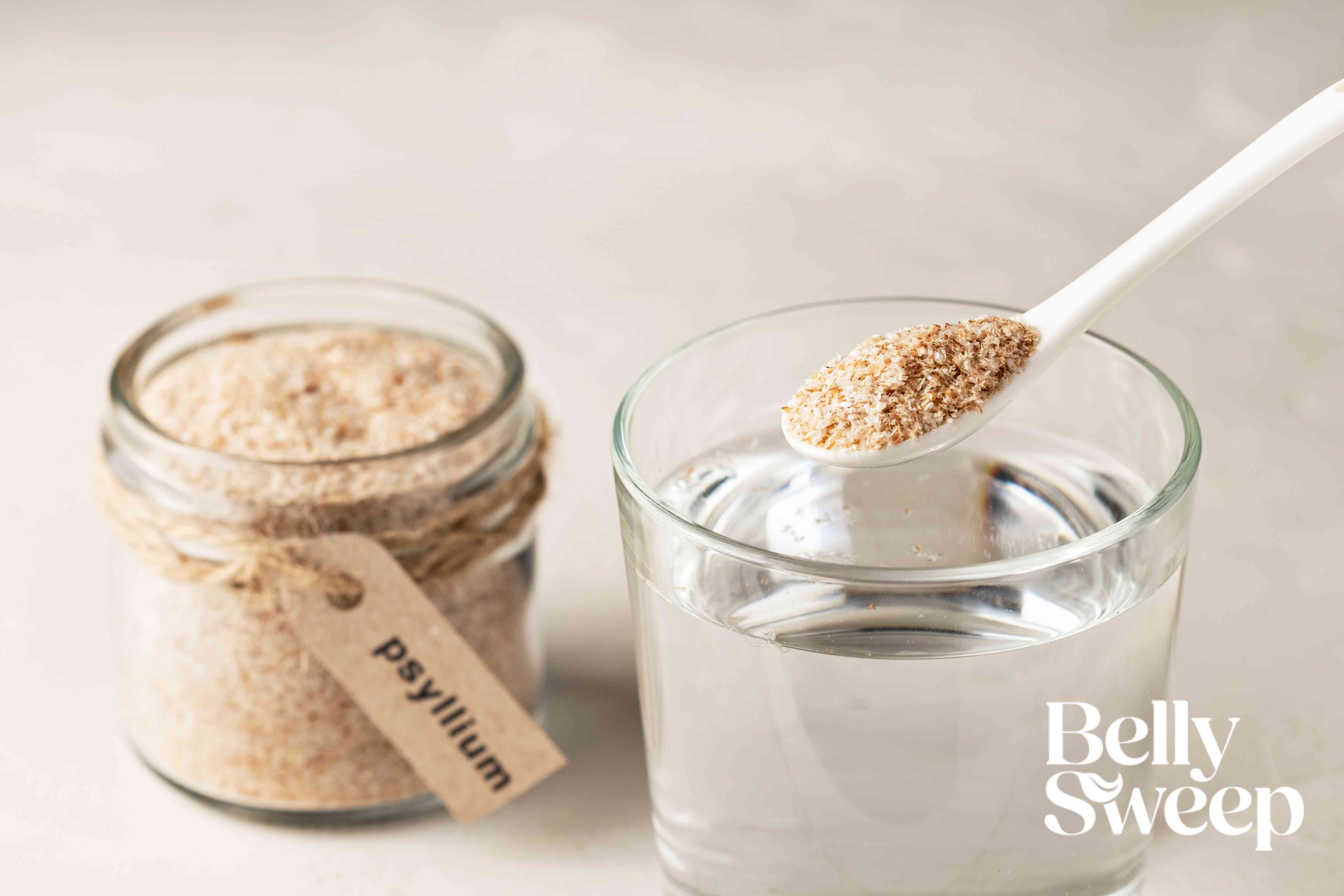Psyllium Husk and Cholesterol – Does It Really Help Lower Your Levels

High cholesterol is one of the biggest killers in the modern world and yet it is something that Mother Nature already knows how to combat. The problem is that our low-fiber, highly processed diets that are built on an industrial scale take out so much of the natural goodness we have evolved to need.
Countless studies on psyllium husk cholesterol management show a direct link between high-fiber supplementation and a reduction in harmful LDL cholesterol levels. When you consider that excess cholesterol can cause heart disease and increase the probability of having a stroke, you see how important fiber is for the body.
Too much cholesterol leads to the buildup of harmful plaque inside your arteries which in turn reduces the rate at which blood can flow. This raises your blood pressure, makes your heart work harder, and puts your entire circulatory system under greater strain. All of these will have a negative impact on both quality of life and overall life expectancy.
We need to take a closer look and figure out how to use psyllium husk supplementation to solve this common issue.
Quick Answer: Does Psyllium Husk Help Lower Cholesterol?
Yes, if you supplement your diet with psyllium husk, you will be taking a key step towards lower, healthier cholesterol levels. Psyllium is a highly soluble fiber that combines with water in the gut to create a substance that is rather like a natural gel. The benefit of this is that it actively prevents bile acids from upsetting the natural balance of the gut by preventing them from being absorbed into the bloodstream.
You pass bile acids out of the body via stool, but the liver needs to produce bile acids as part of its everyday function. The result is that the liver produces higher levels of bile acids which has the positive benefit of drawing more LDL cholesterol out of the bloodstream for processing. Taking psyllium husk supplements will therefore improve your heart health and lower your chances of suffering a debilitating stroke.
Now that we know it works, we need to take a closer look at what it is.
What Is Psyllium Husk?
Psyllium husk comes from the seeds of Plantago ovata and is a naturally occurring type of dietary fiber. Many people benefit from the outcomes of psyllium husk cholesterol studies in the form of improved heart health and reduced blood pressure. Other natural benefits include sustainable weight management, blood sugar regulation, and improved digestion.
Many studies show regularly supplementing with psyllium husk helps nourish the growth of healthy bacteria in the gut which then improves nutrient uptake. Psyllium husk is also highly resistant to the breakdown reactions caused by digestive enzymes. This is why it acts as a thorough workout for the gut while also promoting the growth and proliferation of the ‘good’ bacteria the body needs to thrive.
Because psyllium husk is a natural fiber, it can be readily distilled into supplement form for easier consumption. Many users cite the ability to fine-tune their fiber intake without having to drastically reshape their diet as one of the primary reasons for starting supplementation. If a high-fiber supplement such as BellySweep is taken as part of a healthy, balanced diet, the human body will thrive like never before.
Let’s take a closer look at the specific mechanism that allows psyllium husk supplements to reduce harmful cholesterol levels.
How Psyllium Husk Affects Cholesterol Levels
When psyllium husk is mixed with water in the gut, it quickly swells into a gel-like material that is 100% safe for human consumption. The gel-like nature of the mixture can bulk out stools so that they are easier to pass, soothing and easing constipation in the process. It is also highly effective at binding to bile acids that are deep within the intestines.
As the binding process takes shape, less bile acid can be reabsorbed back into the bloodstream. This forces the liver to call on more LDL cholesterol which it processes and uses to create replacement bile acid. As the cholesterol levels drop in the blood, the harmful buildup of plaque on the arterial walls starts to be removed. Ideal when you want to lower your blood pressure by restoring your body’s delicate natural balance.
To make sure you get the full range of benefits from your new supplementation regime, we need to take a look at best practices for using psyllium husk.
Best Practices for Using Psyllium Husk
Take a moment to ensure that you follow the best practices below and you will be able to get the full range of psyllium husk cholesterol reduction benefits. Exactly what you want to hear when you’re looking to create the perfect balanced diet that offers real quality of life.
Get the right dose
Men will need more fiber than women and young people will need more fiber than older people. These general rules, while worth remembering, will only take you so far, however, because every human body is unique.
The best approach is to take a look at a fiber supplementation guide and use it as a scientifically informed starting point. From there, you will need to listen to the signs and signals your body is giving you to figure out the exact dosage that works best for you.
If you experience gas and bloating, the chances are that you have taken in too much fiber too soon. If you continue to suffer from constipation, further increase your fiber intake while also drinking enough water to keep your urine odorless and clear at all times. The human body is an incredible machine that is constantly telling you what it needs. All you have to do is learn how to speak its language.
Take it at the right time
Some users swear by taking BellySweep as the finishing touch to a main meal while others find much better results by taking it in between meals. There is no right or wrong approach here because your body will be different from everyone else. Start by choosing a time of day that feels realistic so that you can take your supplement at the same time and build consistency.
If what you do works for you, stick with it. But if you find that you are losing your appetite or experiencing mild gas and bloating, change the time you take the high-fiber supplement. At all times, make sure you are consistent and systematic so that you can give your body a stable foundation on which to build.
Mix it the right way
Too much BellySweep and not enough water will lead to constipation because your body cannot process everything you’re putting into it. We suggest mixing a serving of BellySweep in at least 200 ml of spring water. By making sure that you drink regularly throughout the day, you can ensure that you give your body everything it needs to make the most of the extra fiber.
Focus on hydration
It’s such an important point that we’re going to repeat it here. Too often an increase in fiber intake is not accompanied by an increase in water. Fiber draws water into the gut, therefore you need more water in your body when you add more fiber. Setting yourself a daily hydration target will help you stay consistent.
Increase your intake gradually
Jumping up to your optimal level of fiber overnight might be tempting when you want to kickstart your healthy new lifestyle, but it’s going to shock the body. Step up your fiber intake over a couple of weeks and you will give the gut time to adapt to the changes. When you consider that there are over 2,000 different species of bacteria in the gut and that fiber changes the proportions of many of them, you see that you’re asking a lot of your body.
Interactions and Precautions
As with any supplement, there is always a possibility that it will interfere, to a small degree, with certain types of medication. Here are the key considerations you need to make.
Statins and diabetes medication
Statins and diabetes medication are both safe to take when supplementing with psyllium husk. If you want to double-check the specifics, consulting your family physician is the best step to take.
Supplementation during pregnancy
You can enjoy all of the psyllium husk cholesterol benefits discussed in this guide when you are carrying a baby to term. Many women actually find they need a 5-10% increase in the amount of fiber in their diet while pregnant.
Supplementation with GI conditions
IBS and ulcerative colitis can both be soothed with the correct level of psyllium husk supplementation. The key is to make changes gradually so as not to shock the body and overwhelm the gut as doing so can cause painful cramping, gas, and bloating.
FAQs
Are there any side effects or risks, especially for those with heart conditions?
Numerous psyllium husk cholesterol studies highlight that taking the correct levels of fiber helps improve heart health. If you would like to know about how it may help improve your specific condition, the best course of action is to speak to your local doctor for advice.
Can I take psyllium husk alongside statins or other cholesterol medications?
Yes, studies show that taking psyllium husk alongside statins can be more effective than taking statins alone. The human body needs to be fueled correctly for it to thrive and high-fiber supplementation is a key part of that journey.
How much psyllium husk should I take to see results?
While the precise amount will vary depending on sex, body type, and age, most adults will start supplementation in the 20 to 25 g range. Using this as a guide and then fine-tuning based on how your body reacts is the best approach to take here.
Is there research or clinical evidence that psyllium husk lowers cholesterol?
Yes, countless psyllium husk cholesterol reduction studies have shown a strong causal link between higher fiber intake and reduced LDL cholesterol.
What is psyllium husk, and how does it work in the body?
Psyllium husk is a naturally occurring soluble fiber that forms a gel-like substance when combined with water in the gut. This gel then combines with bile acid and prevents it from being reabsorbed into the bloodstream. The liver is then forced to create more bile acid by processing the excess cholesterol in the body.
Final Thoughts
Psyllium husk cholesterol studies show without any doubt that high-fiber supplementation plays a vital role in reducing harmful LDL cholesterol levels. Supplementing with BellySweep can help people of all ages optimize their fiber intake without having to drastically change the volume of food they eat.
Once you start to experience the results, you’ll be left in no doubt that your body benefits from a higher fiber intake.
RESOURCES
- Anderson, J. W., Davidson, M. H., Blonde, L., Brown, W. V., Howard, W. J., Ginsberg, H., & Allgood, L. D. (2000). “Long-term cholesterol-lowering effects of psyllium as an adjunct to diet therapy in the treatment of hypercholesterolemia.” American Journal of Clinical Nutrition, 71(6), 1433-1438.
https://pubmed.ncbi.nlm.nih.gov/10837282/ - Solà, R., Bruckert, E., Valls, R. M., Narejos, S., Luque, X., Castro-Cabezas, M., & Farrés, X. (2010). “Soluble fiber (Psyllium) as a hypocholesterolemic dietary supplement: A meta-analysis of randomized controlled trials.” Clinical Nutrition, 29(5), 574-581.
https://pubmed.ncbi.nlm.nih.gov/20413122/ - Jenkins, D. J. A., Kendall, C. W. C., Vuksan, V., Vidgen, E., Parker, T., Faulkner, D., Mehling, C. C., & Lapsley, K. G. (1999). “Soluble fiber intake at a dose approved by the US Food and Drug Administration for a claim of health benefits: Serum lipid risk factors for cardiovascular disease assessed in a randomized controlled crossover trial.” American Journal of Clinical Nutrition, 70(3), 466-473.
https://www.ahajournals.org/doi/10.1161/JAHA.121.021515 - Pal, S., Khossousi, A., Binns, C., Dhaliwal, S., & Ellis, V. (2011). “The effect of a psyllium fiber supplement on insulin resistance and components of the metabolic syndrome in overweight and obese individuals.” British Journal of Nutrition, 105(3), 402-409.
https://www.cambridge.org/core/journals/british-journal-of-nutrition/article/effect-of-a-fibre-supplement-compared-to-a-healthy-diet-on-body-composition-lipids-glucose-insulin-and-other-metabolic-syndrome-risk-factors-in-overweight-and-obese-individuals/DDE90317EE5D477C1E0594B6E2B1AA79 - Brown, L., Rosner, B., Willett, W. W., & Sacks, F. M. (1999). “Cholesterol-lowering effects of dietary fiber: A meta-analysis.” American Journal of Clinical Nutrition, 69(1), 30-42.
https://pubmed.ncbi.nlm.nih.gov/9925120/ - Maki, K. C., Carson, M. L., Miller, M. P., Turowski, M., Bell, M., Wilder, D. M., Rains, T. M., & Reeves, M. S. (2008). “High-molecular-weight hydroxypropylmethylcellulose blunts postprandial glycemia in individuals with type 2 diabetes mellitus.” Journal of Nutrition, 138(1), 139-143.
https://pubmed.ncbi.nlm.nih.gov/17259476/ - Vuksan, V., Jenkins, D. J. A., Spadafora, P., Sievenpiper, J. L., Owen, R., Vidgen, E., & Brighenti, F. (1999). “Konjac-Mannan and Psyllium: Emerging Alternative Viscous Fibers for Lowering Cholesterol and Controlling Diabetes.” Current Opinion in Lipidology, 10(6), 563-571.
https://pubmed.ncbi.nlm.nih.gov/10372241/ - Weickert, M. O., & Pfeiffer, A. F. H. (2018). “Impact of dietary fiber consumption on insulin resistance and the prevention of type 2 diabetes.” Journal of Nutrition, 148(1), 7-12.
https://pubmed.ncbi.nlm.nih.gov/29378044/ - McRorie, J. W., & Chey, W. D. (2016). “Fermented vs. non-fermented fiber: Implications for gut health and the treatment of constipation.” Alimentary Pharmacology & Therapeutics, 43(8), 899-915.
https://pubmed.ncbi.nlm.nih.gov/27680987/ - Marlett, J. A., McBurney, M. I., & Slavin, J. L. (2002). “Position of the American Dietetic Association: Health implications of dietary fiber.” Journal of the American Dietetic Association, 102(7), 993-1000.
https://pubmed.ncbi.nlm.nih.gov/12146567/








